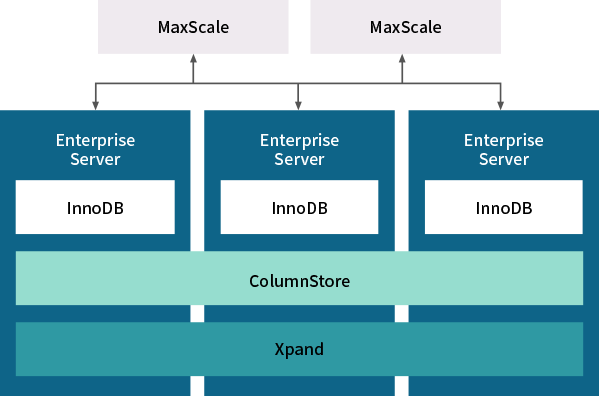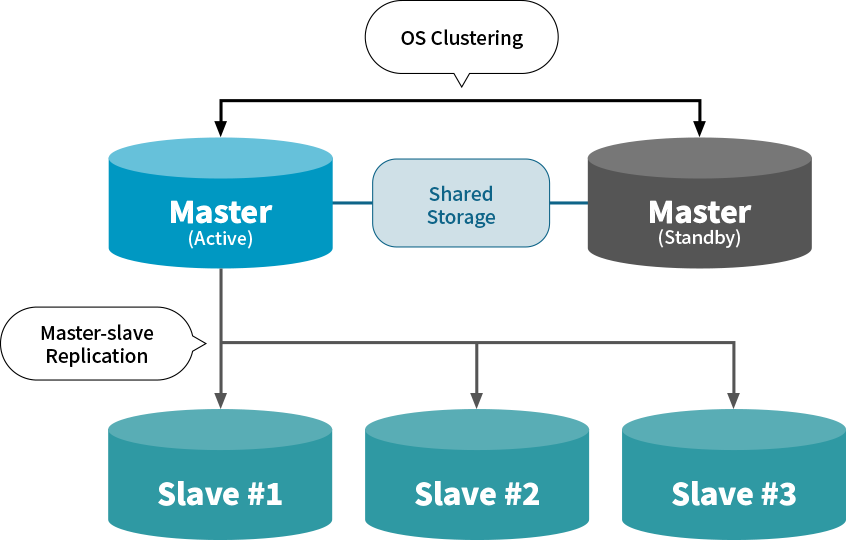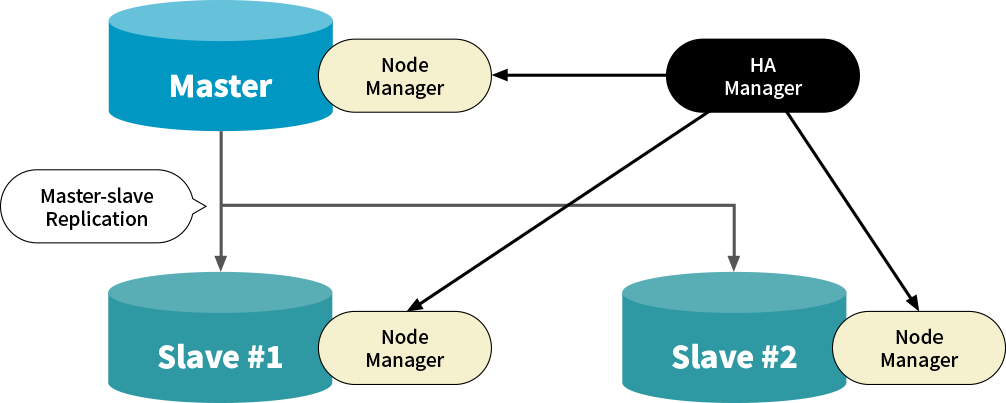- DBMS (Database Management System)
- Offering > Software Technology Service > Open Source SW > DBMS
DBMS (Database Management System)
We provide integrated technical service of EDB PAS, MariaDB and PostgreSQL.

Why We Do
The use of open source DBMS is increasing due to the change in system architecture.
-
 System architecture change
System architecture change
In the past, the DBMS in the monolithic architecture was very important in terms of reliability and stability to handle all centrally concentrated loads, and a commercial DBMS that guarantees this was the mainstream. However, as data went through the service-oriented architecture and microservice architecture, the data became dispersed. And as a result, the Total Cost of Ownership (TCO) became important. As a solution, open source DBMS is emerging. -
 Spread of open source DBMS
Spread of open source DBMS
As open source acts as an important pillar of digital innovation, the proportion of open source, including DBMS, in enterprise applications will increase in the future. In addition, as concerns about the dependency on a specific company or product are growing, more companies are choosing open source DBMS products to avoid this. -
 Anxiety about using open source DBMS
Anxiety about using open source DBMS
The latest open source DBMS has high reliability and stability that are comparable to commercial products. However, concerns still remain about the difficulty to quickly respond to unexpected failures or performance issues when they occur.
To solve this problem, it is necessary to secure professional in-house manpower or get help from a professional company with a high understanding of open source DBMS.
Product Introduction
Complete-production Level Open Source DBMS Solution
The MariaDB platform is the industry’s leading enterprise open source DBMS.
It features compatibility with Oracle DBMS, segmentation, temporary tables, dynamic data masking, and time rollback.
It also has an innovative architecture based on a specialized plug-in storage engine that improves query performance by using storage engines optimized for specific workloads in various tables or databases with different workloads.

Components
- MariaDB MaxScale (proxy exclusive for database)
MaxScale is a proxy exclusive for database supported by MariaDB. It is the same as the HA proxy, but it is more specialized in DB, such as the feature to distribute database to the server with specific DB reading/writing queries. MaxScale helps to efficiently configure separation structures in architectures that require reading/writing separation. - MariaDB Enterprise Server
MariaDB Enterprise Server is a complete-production level open source DBMS solution equipped with various functions such as transaction, analysis, hybrid transaction, and handling analysis workloads as well as relational/document data. It can also execute independent databases and column type data warehouses with millions of transactions per second databases and can extend them to fully dispersed SQL databases to perform interactive temporary analysis of billions of rows. - MariaDB Xpand
It can be used as a large/distributed database that enables easy node addition/deletion and automatic failover configuration. Manual segmentation and sharding development is not required and dynamic resource re-distribution by workload increases operational efficiency.
Customer Case
Reduced TCO and secured a reliable operating environment
– A global electronics manufacturer
Challenges
Company A was using a commercial DBMS for the groupware system (4 million users, 24×7 global services). The burden of maintenance cost and the increasing demand for response to the latest changes in IT trends made the company replace with the open-source DBMS.
Company A needed a solution to enable stable transfer of different databases, large-capacity traffic processing, and zero downtime.
- Reduced TCO
Reducing expenses for licensing, maintenance and repair - Effective IT
Quick response to customer requirements - Avoiding vendor lock-in
Reducing expenses for licensing, maintenance and repair
S-Core Services
S-Core services solved problems between heterogeneous databases, stably transferred data with out CDC, and optimized system performance for bulk traffic processing. We successfully completed the project by suggesting technical solutions such as OS Clustering and SW Clustering for zero downtime. Even after replacing with the new DBMS, we try to minimize damage with quick response in case of a failure, and we identify potential problems from the release of a new version and notify customers of them to prevent possible issues. In the event of a bug, we provide a faster customized building or bypass rather than the official release in collaboration with the vendor’s global headquarters.
Effect
Company A replaced the previous commercial DBMS with the stable version of open source DBMS (MariaDB), thereby reducing TCO.
Insight Report
Ask Us Anything
If you leave an inquiry with us, we will provide you with a swift, detailed response.
Get in Touch





